Juicing has grown in popularity to improve the number of fruits and vegetables in our diets. However, choosing the finest juicer can be challenging, given the many options available. Cold Press Juicers and Normal Juicers are two popular options.
In contrast to cold press juicers, which use a slow, gentle squeezing process to extract juice, normal juicers use a high-speed spinning blade to chop up the produce.
In this piece, we’ll look at the differences between Cold Press Juicer vs Normal Juicer, so you can choose the one that’s right for you.
Whether you’re a health enthusiast, a busy professional, or an eager beginner, this article will provide valuable information on the world of juicing and help you choose the correct type of juicer.
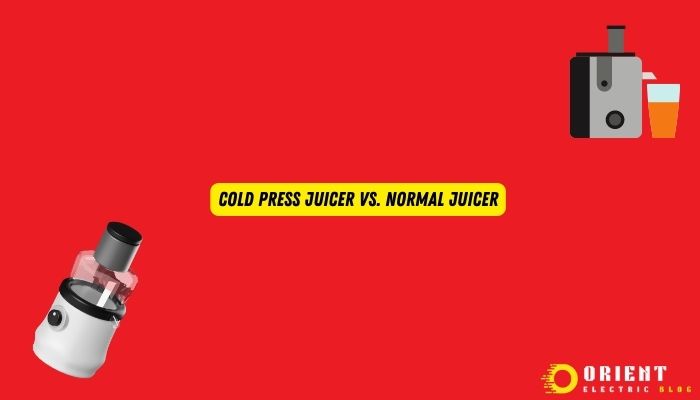
Cold Press Juicer vs Normal Juicer
What is a Cold Press Juicer?
Cold press juicers, sometimes called masticating or slow juicers, squeeze and grind produce slowly to extract the juice. By using this technique, you can prevent the heat and oxidation that high-speed juicers produce, which can harm the juice’s nutrients and enzymes.
Cold press juicer advantages:
- Higher juice yield: More juice per unit of product is produced by cold press juicers because they are more effective at extracting juice.
- Longer shelf life: Juice has a longer shelf life since cold press juicers generate less heat and oxidation.
- Retention of nutrients: Cold press juicers keep more of the juice’s nutrients and enzymes intact, improving its nutritional value.
- Less noise: Compared to standard juicers, cold press juicers operate at a slower speed and are, therefore, quieter.
- Versatility: Leafy greens, wheatgrass, and hard vegetables can all be juiced with a cold press juicer.
Ideal Juicing with Cold Press Juicers:
- Leafy greens: A cold press juicer makes juicing kale, spinach, chard, and other leafy greens simple.
- Wheatgrass: Juicing wheatgrass, which can be challenging with a normal juicer, is best done with a cold press juicer.
- Hard vegetables: A cold press juicer makes juicing carrots, beets, and other hard vegetables simple.
3 available best cold press juicer models:
Cold press juicers are a fantastic choice for people seeking a better juice yield, a longer shelf life, and the preservation of nutrients and enzymes.
1. Juicer Omega NC1002HDC:
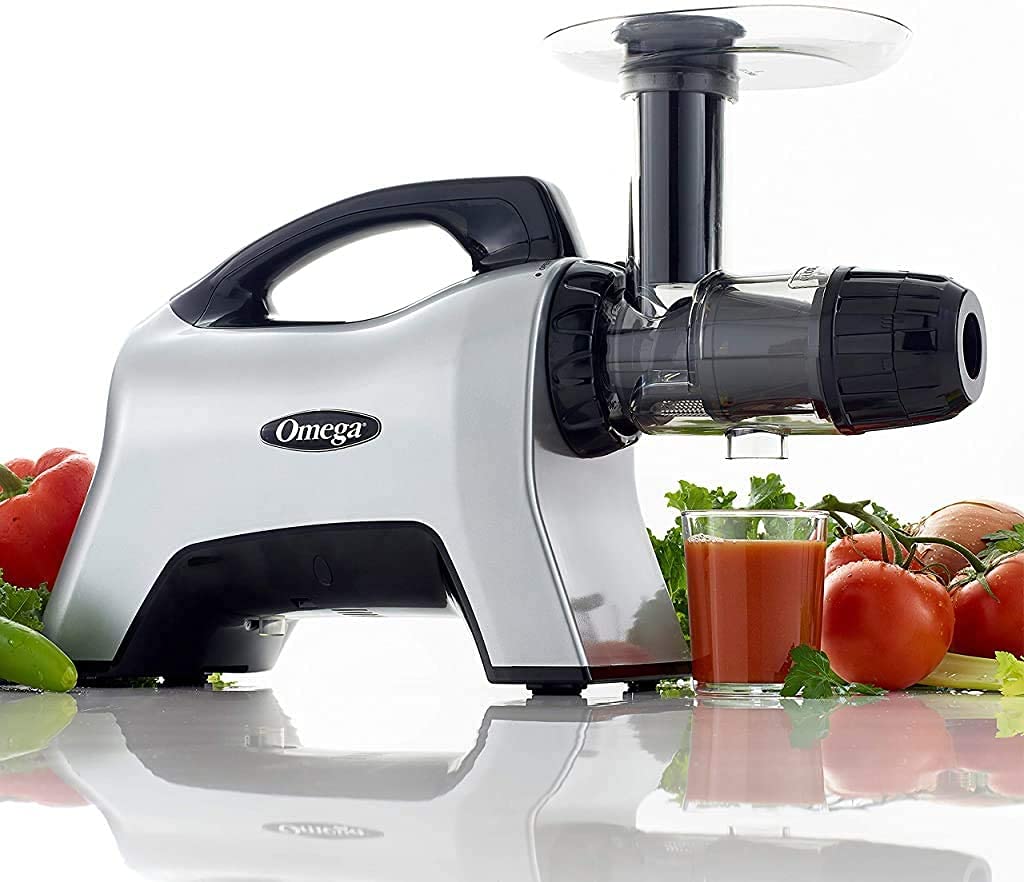
2. Hurom HP Series Cold Press Slow Juicer:
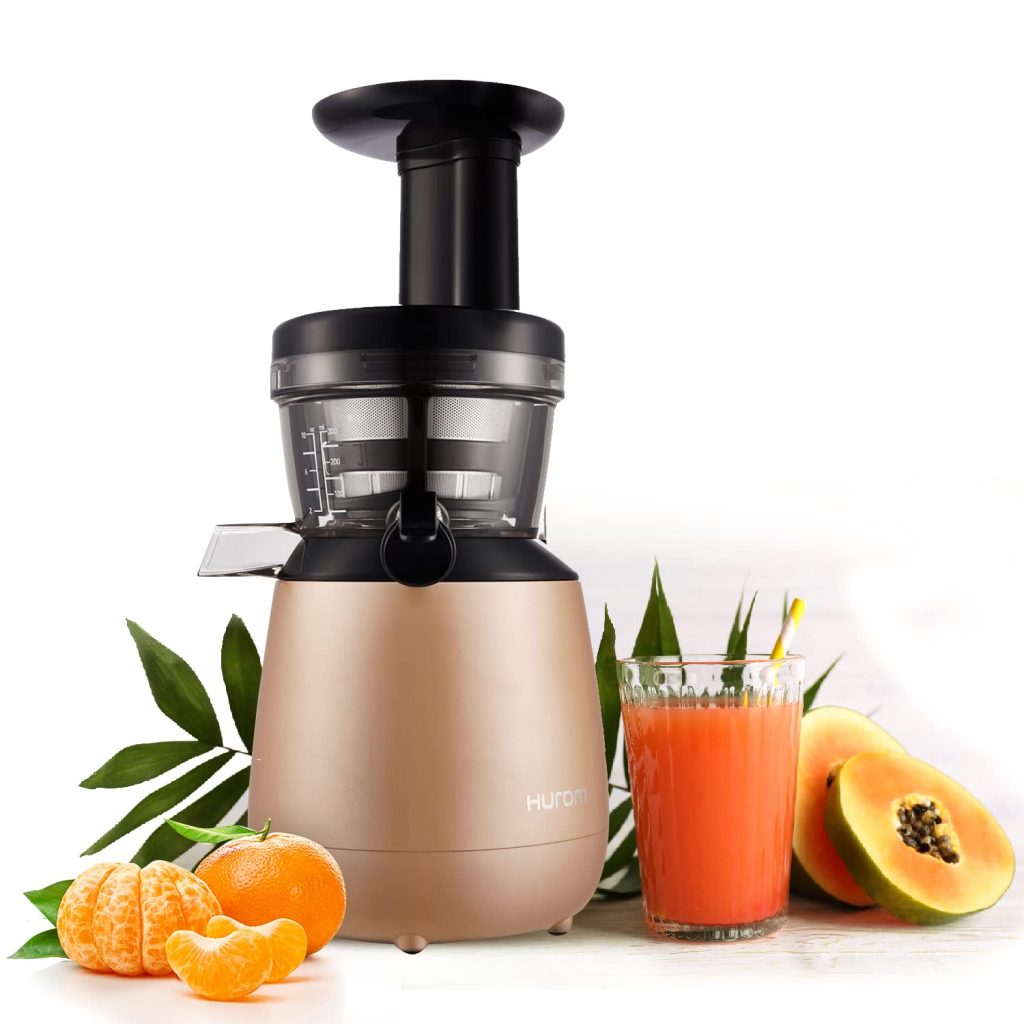
3. Tribest Greenstar Elite GSE-5010 Cold Press Juicer:
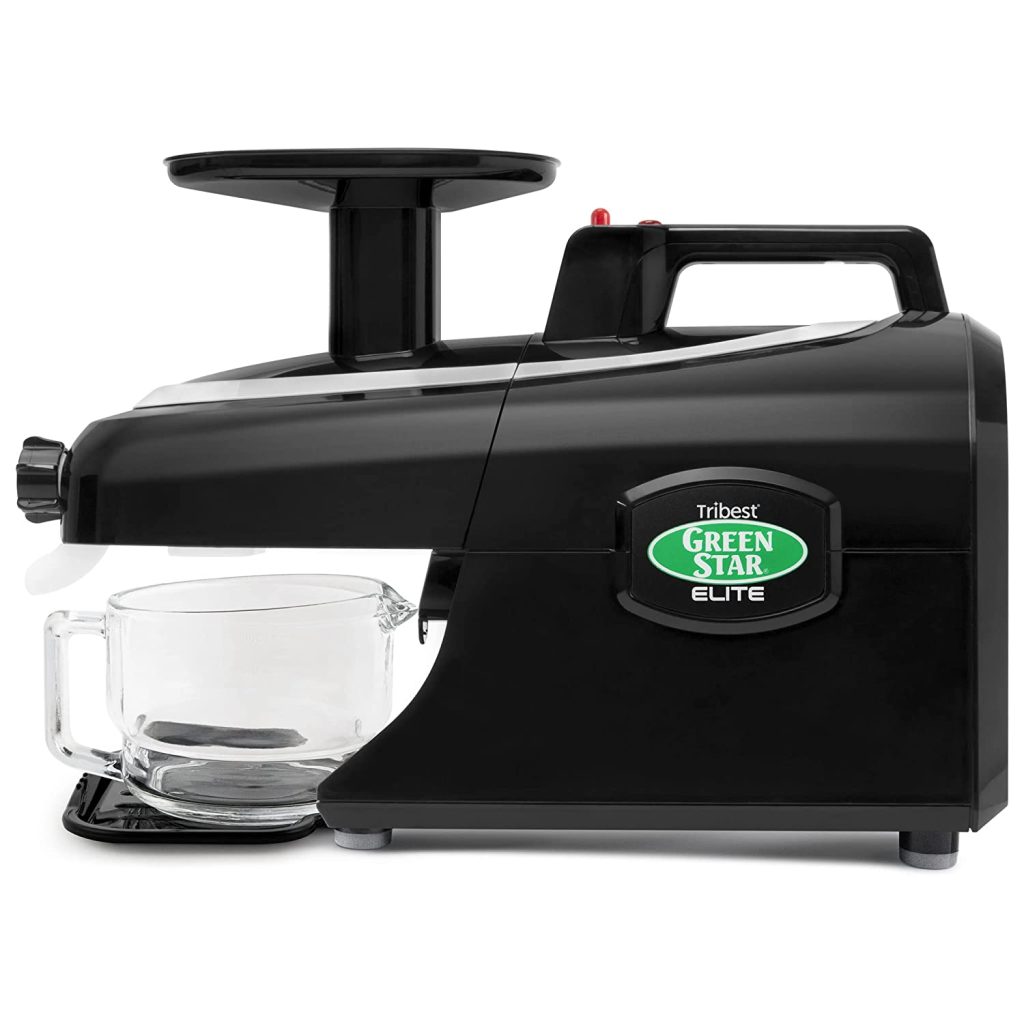
What is a Normal Juicer?
Normal or centrifugal juicers mash, produce and extract the juice using a fast-spinning blade. This process is quick and effective but can produce heat and oxidation, harming the juice’s nutrients and enzymes.
Normal Juicer advantages:
- Faster operation: Normal juicers can quickly produce juice, making them a good choice for busy people.
- Affordable: Normal juicers are frequently less expensive than cold press juicers, making them cost-effective.
- Cleanup: Compared to cold press juicers, normal juicers are typically simpler to clean.
Ideal Juicing with Cold Normal Juicer:
- Hard fruits and vegetables: Apples, carrots, and other hard fruits and vegetables are simple to juice with a standard juicer.
- Soft fruits: A typical juicer can also make juice from berries, oranges, and other soft fruits.
3 available Best Normal Juicers:
Normal juicers are a good choice for those looking for a quick and inexpensive way to juice soft fruits and hard produce. There might be better choices than this if you want to keep the juice’s nutrients and enzymes longer.
1. Black+Decker 400-Watt Fruit and Vegetable Juice Extractor:
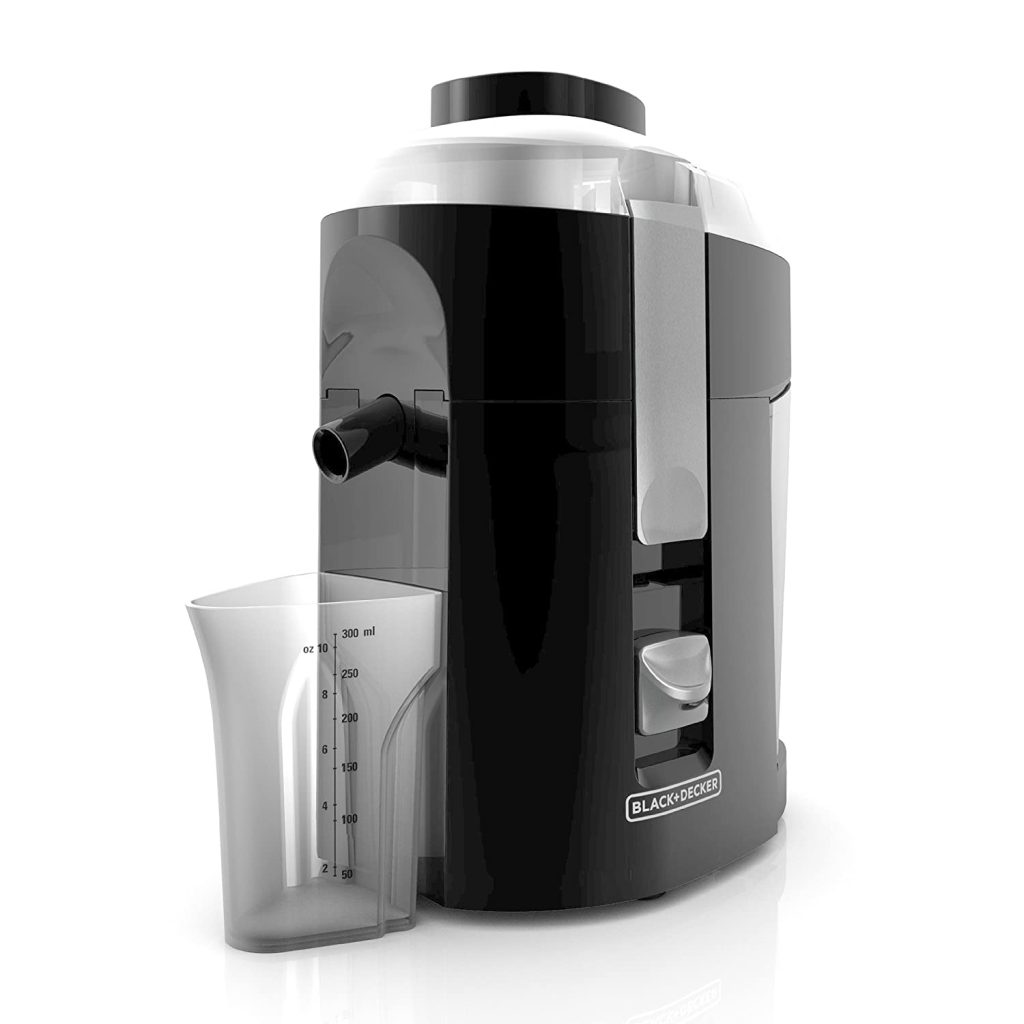
2. Breville Juice Fountain Plus:
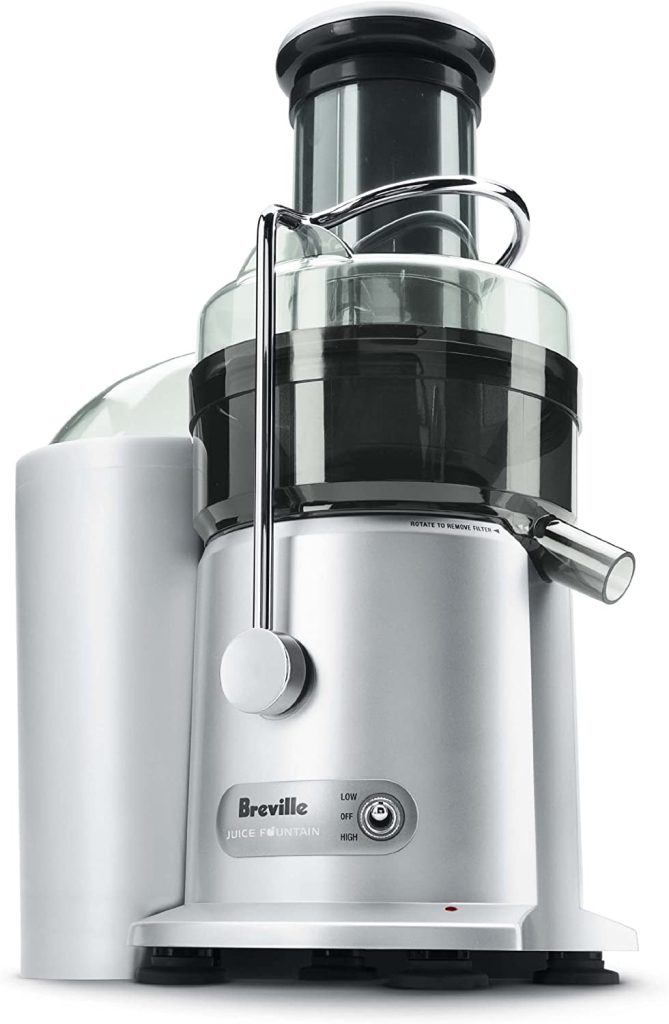
3. Hamilton Beach Big Mouth Juice Extractor:
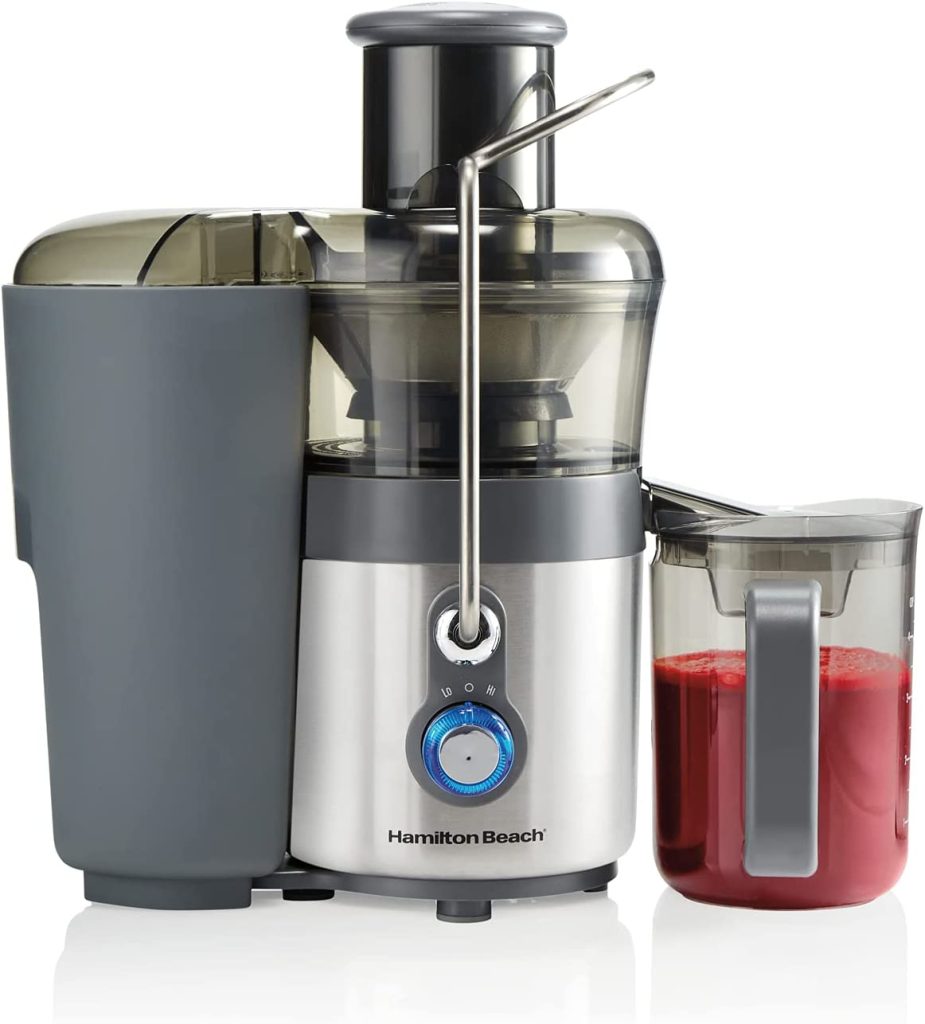
Which Juicer Should You Choose: Cold Press or Normal?
It all boils down to personal preference and priorities when deciding between a cold press juicer and a Normal juicer. Here are some things to think about:
- Nutrient retention: If retaining the nutrients and enzymes in the juice is a key priority, a cold press juicer is likely the superior option.
- Yield: A cold press juicer can be the best option if getting the most juice out of your vegetables is vital to you. Compared to Normal juicers, they frequently yield more juice.
- Speed: A standard juicer can be a better choice if you need juice quickly and are short on time. Compared to cold press juicers, they can produce juice much more quickly.
- Price: Cold press juicers are more expensive than standard juicers, so if cost is a problem, a normal juicer is a more reasonable option.
Ultimately, both cold press and conventional juicers have pros and cons; the choice will depend on your needs and tastes. Consider your requirements and research before purchasing to guarantee you get the juicer that best meets your needs.
Conclusion:
In conclusion, conventional and cold press juicers have advantages and disadvantages. While Normal juicers are speedier and more economical, cold press juicers offer larger juice yields, longer shelf life, and preservation of nutrients and enzymes.
When picking between a cold press juicer and a conventional juicer, evaluate your priorities, such as nutrition retention, yield, speed, and pricing. By analyzing the advantages and cons of each option, you may choose the juicer that best matches your needs and preferences.
Regardless of which style of juicer you pick, including fresh juice in your diet can bring a range of health benefits, such as greater energy, improved digestion, and a boost in overall wellness. So, whether you like a cold press or a conventional juicer, start juicing today and enjoy the many advantages of fresh, healthy juice!
